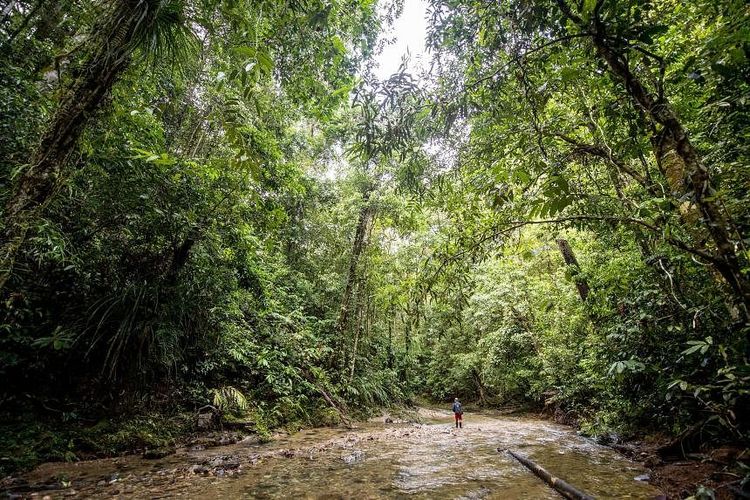Global non-profit aims to boost S’pore’s green economy, save more nature spaces in region

SINGAPORE – An international non-governmental organization dedicated to the environment has established its headquarters in Singapore, supporting the nation's aspirations to become a leading center for sustainable finance.

The Nature Conservation Organization (TNC), based in the USA, has the objective of increasing the availability of top-notch carbon credits in the area and facilitating the development of additional conservation initiatives in South-east Asia.
Carbon offsets are licenses that corporations or nations can purchase from initiatives like preserving forests in Indonesia in order to compensate for their release of greenhouse gases. Each credit denotes the emission of one metric ton.
According to Thomas Brzostowski, the Singapore country director of TNC, numerous companies and investors in Singapore desire to acquire top-notch credits. However, the availability is insufficient, especially from this specific region.
He observed that the Asia-Pacific region only receives around 16 percent of the total impact investments worldwide.
According to the South-east Asia Green Economy 2023 report released in June, approximately $400 billion (equivalent to S$542 billion) worth of funding in natural resources is required in order to achieve the climate objectives set for the region by 2030.
The report suggests that South-east Asia should prioritize and accelerate its actions to ensure that the preservation and revival of the environment becomes a financially viable alternative to activities like logging. It advises implementing market-driven strategies to ascertain the value of nature and its capacity to store carbon.
Established in 1951, TNC has engaged in conservation initiatives in over 70 nations and regions. They have safeguarded more than 50 million square kilometers of land, which is roughly equivalent to 700 times the area of Singapore. By 2030, their goal is to preserve land areas that are 9,000 times larger than the entire island state.
TNC's entrance into the Republic was backed by the Economic Development Board. The establishment located at 63 Robinson Road in Singapore has a team of 15 individuals. It is now a part of the league of global environmental organizations, like WWF-Singapore and BirdLife International, who also maintain their offices in this city.
TNC recently teamed up with seven other conservation-affiliated groups to establish the Coalition for Climate and Nature-based Solutions in Southeast Asia (Scene). The primary objective of this coalition is to advance investments and expand the implementation of nature-based solutions in the region.
Dr. Brzostowski presented three key areas of focus for the coalition in the upcoming three to five years: an interactive tool based on maps to assist community frontliners, a collection of exemplary nature-based initiatives that can be replicated by others, and an incubator program designed to provide support to frontliners engaged in conservation projects. Community frontliners may encompass villagers or grassroots organizations seeking to revive their peatlands and mangroves, among other endeavors.
However, Dr. Brzostowski pointed out that numerous individuals or groups face a lack of financial support in order to cover the costs of preliminary studies on feasibility or to gain access to necessary technology. Additionally, there is also a lack of understanding regarding the completion of necessary documentation for projects related to nature.
The startup program will support potential local communities in improving their initiatives at different stages – from exploring their feasibility to selling carbon credits. The alliance is perfecting the program and intends to launch it in the year 2024.
"He expressed hope that these community-based initiatives could be a game-changer, potentially leading to a significant increase in the quantity of carbon projects or credits they generate."
Dr. Lahiru Wijedasa, the Asia forest coordinator at BirdLife International, a member of the alliance, highlighted that the availability of nature-centered carbon credits is limited in this area, primarily due to regulatory factors.
He stated: "Due to the fast development of the nature-based solutions sector in the last decade, countries have faced challenges in keeping up. However, in South-east Asia, the policies and regulations are becoming more transparent. We can expect a significant surge in credits related to nature-based initiatives in the upcoming years."
This is where the importance of Scene comes into play: Their role is to provide valuable insight into the definition of high-quality carbon credits.
Dr. Brzostowski explained the reason behind TNC's decision to expand to Singapore by stating that they have observed Singapore's growth as an important center for environmental initiatives, nature-focused solutions, and the trading of carbon credits over the past few years. This is why TNC made the choice to establish a small team in Singapore, in order to contribute to the advancements being made in innovation, scientific research, and partnerships within the country.







































































